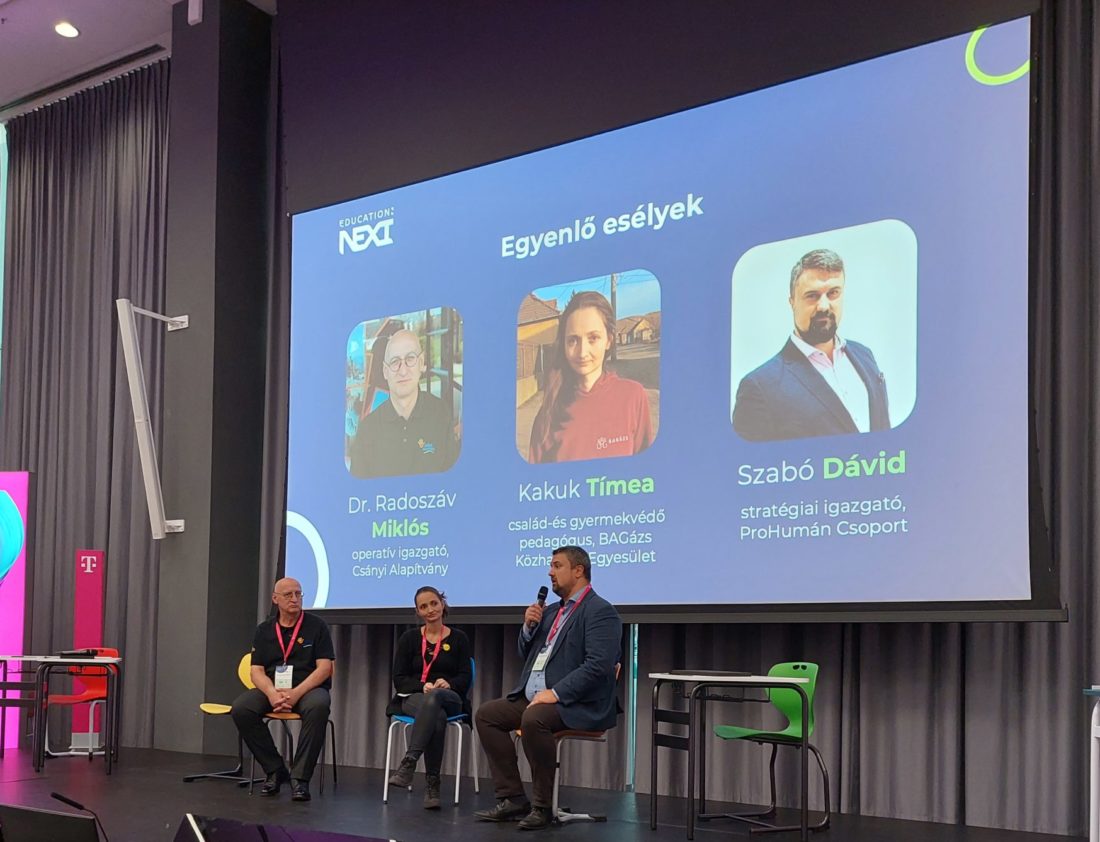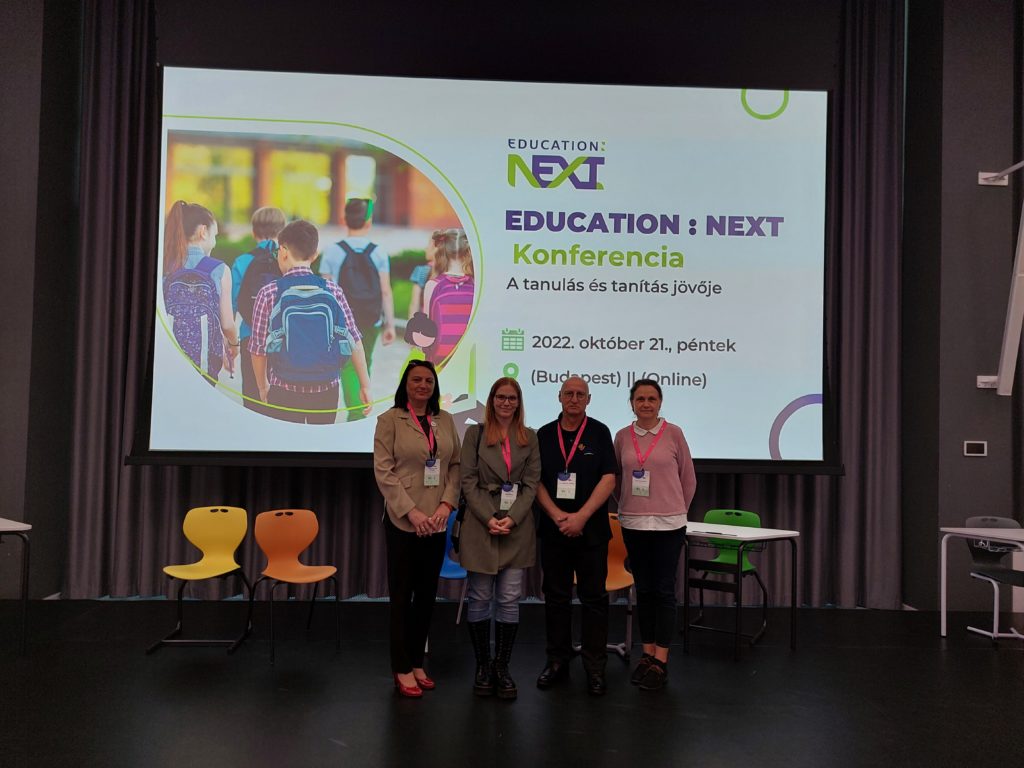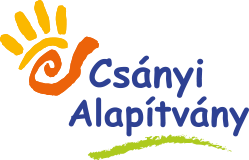
Education:Next – discussion of the future of education
What does the future hold? The pandemic has shaken up generations brought up with a traditional, face-to-face education, and has pushed them into the online space for almost two years. What do we take away from this period? What have we kept? What could we do better? On 21 October, the Education:Next conference took place, with the future of education as its key theme. In a colourful programme, the future of education was approached from several angles: digitalisation, sustainability, the school as an institution, the importance of the educational environment, changing teaching skills, the role of the teacher in and out of the classroom.
Mart Laanpere, Professor at the University of Talinn, made an interesting observation: parents of students at a local primary school wanted to create an outdoor classroom for their children. After much planning, they dreamed up the structure: boards were stretched between two tree trunks and the logs were arranged in a row – the outdoor classroom was created. Mart raised an eyebrow: here is the world around us, we could do anything, but the best we can think of was the image of the classroom we knew in the 1920s? The board was soon off the trunks.
I was quickly reminded of the work at the Csányi Foundation: you don’t often come across chalk-dusty sponges and rows of benches. More so with microscopes testing algae and water samples collected at home, 3D printers, bird-watching bases: the Community Houses’ innovation could be discovered in each presentation I had heard. The future is truly in our hands.
What good is education if it only reaches a small slice of society? However, the Csányi Foundation was not only a theoretical but also a practical participant: Dr. Miklós Radoszáv took part in a panel discussion on equal opportunities.
For 17 years now, we have been supporting talented but disadvantaged children within the framework of the Guidance Programme. However, our main goal is not to provide lexical knowledge, but to create value. We offer children opportunities they may not have had before: by developing self-awareness, time-tested skills – IT competences, language skills, analytical thinking – we help them to enter the world of work in a way that enables them to cope with an ever-changing and evolving environment.
Our success is demonstrated by the numerous diplomas, language exams, ECDL exams, but most of all by the active involvement of students in the life of younger groups and the vibrant network of contacts that has been established.
One thing is for sure: the Guidance Programme can be completed by a grantee – but we never really let go of their hand.
Bianka Járay, Pécs 2 Group



